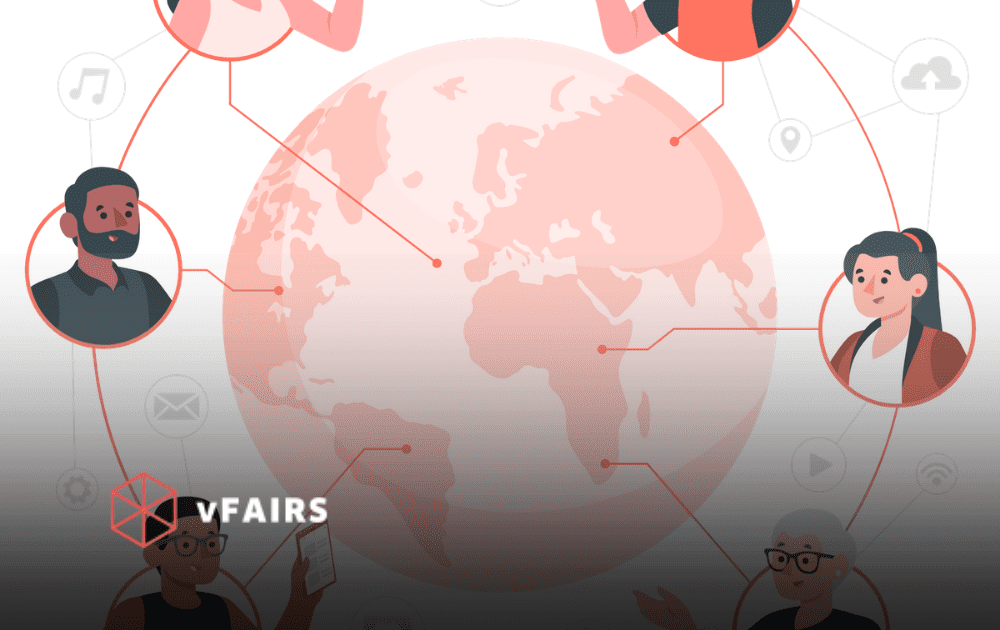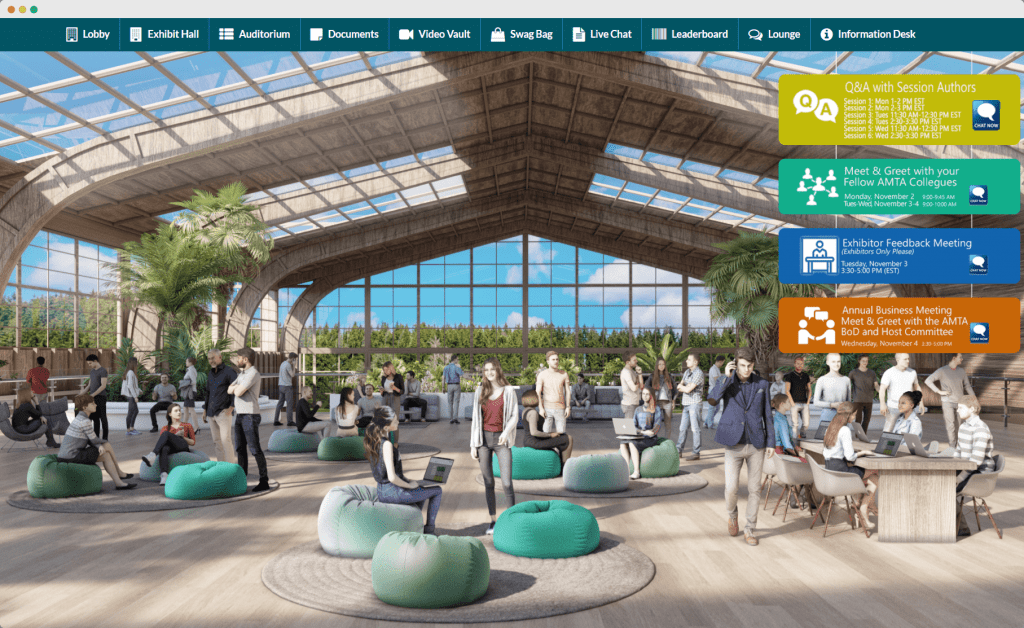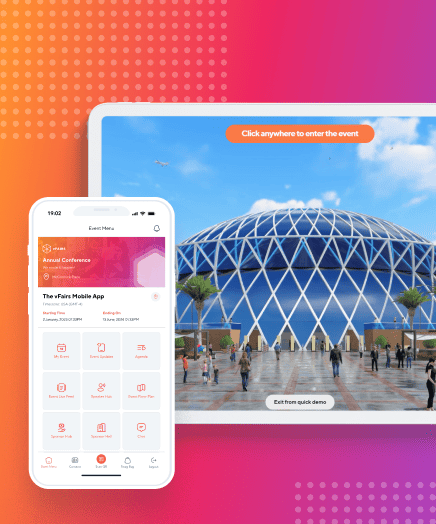Alumni professionals, listen up. Your benefits and services aren’t serving your alumni networks. In fact, 82% of alumni professionals believe their alumni would say their benefits and services offer little or no value. Are you part of this majority?
It may feel more challenging than ever to keep your network connected. Gone are the days of face-to-face networking and in-person events to keep your alumni network engaged. People are also receiving more emails, ads and social media spam than ever. Competing for your alumni network’s attention seems impossible.
It may feel overwhelming to seriously overhaul your entire strategy. But all it really takes is a new perspective and some thoughtful planning. Enter: online communities.
The community perspective
Let’s talk point-of-view. The problem many institutions face today is that they don’t offer anything valuable in the online content they’re sending. Therefore, they aren’t seeing much engagement with their content. If you’re relying solely on an email newsletter, sporadic social posts and unengaging webinars, you need to dig deeper. The main point of a network is to build community and connectedness.
There are so many ways you can truly foster connections within your network online. And your alumni are online constantly. This fact alone shouldn’t make you shy away, it actually opens up lots of opportunities for you to connect with alumni.
Rather than speaking at your network, you need a self-sufficient, ever-growing space where your alumni can truly connect. They need to feel empowered to engage with each other. You need an online community.

Strategic benchmarks
Building an online community is more than just setting up a community page on Facebook. It takes a lot of TLC, especially at the start. So, what are some of the milestones you should work into your community-building strategy? Let’s have a look.
Find your platform
Facebook and LinkedIn are both good options to create communities. They each offer their own ‘Groups’ pages that are set up specifically for such uses. You can also host an online community from your own alumni website, or choose from a wide variety of community-building apps or platforms such as Disciple.
Much of this decision will be based on the resources you have. If you have a web team to build out a fully functional community page, you might opt to host it right on your website. Your team may have a large team but have enough in the budget, so you might opt for an app that lets you customize your online community. If you’re running on a tight budget and few resources, LinkedIn and Facebook are both free and can still help you build and run successful alumni communities.
Leverage alumni network ‘ambassadors’
You’re likely aware of some of your most active alumni. You know those people who have shown up to all of your alumni events, engaged with lots of your content, and just feel truly connected to the school? Contact a list of your most engaged alumni and ask them to be ‘ambassadors’ within your community.
Ambassadors can act as bridges between the large organization (you) and the individual, thus making others feel more comfortable participating in community conversations and activities. They’ll be your go-to’s for user-generated content (such as photos from past events). You’ll see they’re the most active on your community posts and forums. And they’ll likely act as the ‘voice’ for the group when participation is low.
The great thing about ambassadors is that they generally don’t need to be incentivized to participate. Of course, it is extremely important to keep up relationships with them and show your appreciation!
Post engaging content
No one publishes content they don’t believe is relevant or interesting to their audience. People expect that when they share content, they’re going to have high levels of engagement across the board. The issue here is that just because it’s interesting and relevant to your team doesn’t mean your alumni will feel the same.
Sharing news and updates about the institution might feel interesting to you, but you need to elaborate on why this is important to your alumni. Maybe you’re building a new net-zero emission building — talk about how that links to your school’s green initiative and how it’s just one of the steps you’ve been taking to become more eco-friendly.
Or, maybe you’re hosting a career workshop for new graduates. This isn’t going to be relevant to your older alumni, but you can ask them to submit stories about their career experience and share advice with the younger crowd. These are just a few ways you can take your content that extra step further to make it relevant, interesting and encourage engagement amongst your whole group.
Solicit feedback from your alumni network
Make sure that you’re constantly asking your community members for feedback about what will encourage them to stay engaged with your network. There are a few ways you can go about this:
- Posting polls, surveys, and questions asking your community about hot topics or ideas you’d like to pursue.
- Reading through and commenting on your community members’ posts. Make an effort to ask for more information if there’s anything you’d like to know more about.
- Direct messaging some of the more active community members to have more in-depth conversations about their experiences and expectations.
The overarching point here is that if your networks are online all the time, you should be online almost as often. Make sure you’re truly taking time to understand what they care about and what they expect from you.
Host a marquee event
A marquee event will offer your community the opportunity to connect in a highly engaging and interactive environment. Virtual alumni networking events should be a natural extension of your online community strategy. These events should be hosted annually and should focus on introducing new members of the alumni network (read: new graduates) to existing members of the community.
Let’s explore the benefits of a virtual alumni networking event a bit more in-depth.

Benefits of hosting a virtual alumni networking event
Welcome new alumni
Hosting a yearly alumni networking event is a great way to help new grads transition into your alumni network. You can time the event for soon after their commencement ceremonies to tie the transition together flawlessly. Share all the benefits of being part of your alumni network, including things like deals and discounts you offer with various vendors and professional networks.

Foster mentorship opportunities
At your virtual networking event, alumni can each boast an attendee profile featuring things like their current industry, occupation or even areas of interest. This helps other alumni search and connect with people with similar experiences. Virtual alumni networking events can also include features such as ‘suggested matches’ that will help new and existing members with similar backgrounds or interests easily find each other. Networking features like chat, audio and video calls offer them the chance to connect right within the virtual platform.
Engage your alumni network in new ways
Networking events also give your community new ways to engage with you. Host engaging webinar presentations, share exciting initiatives and updates about your school and include fun gamification options like virtual scavenger hunts. Attendees can make sure their voice is heard by participating in live polling or chatting one-on-one with representatives in a private conversation. While your community should foster connections within themselves, this is a great way to humanize your team and offer alumni time to chat with you privately.
Track attendee behaviour
We already talked about soliciting feedback in a few different ways. But tracking where your attendees were most drawn within the event is the ultimate feedback. You can view your attendees’ behaviour in real-time as the event goes on to understand exactly what resonates with them. This data includes individual user journeys, webinar attendance, booth visitor activity, and more. If anything can help inform what type of content your alumni will be most engaged with, it’s this.



